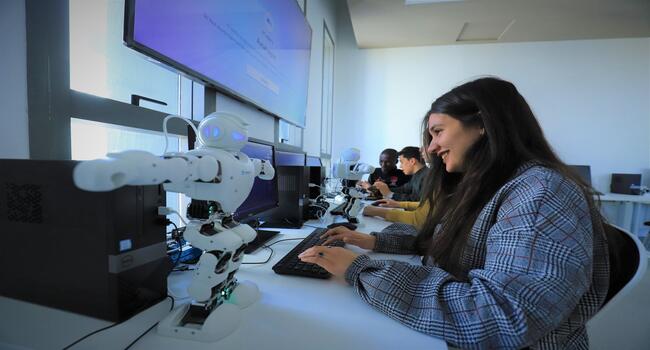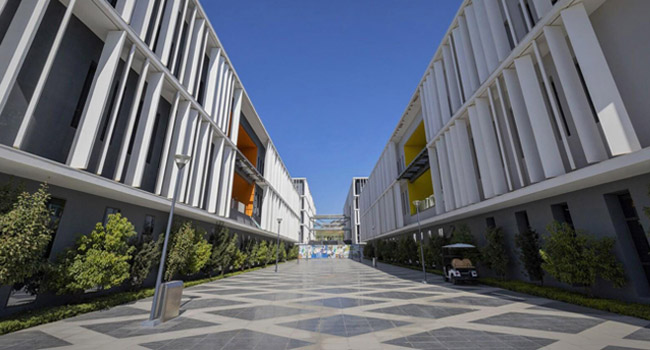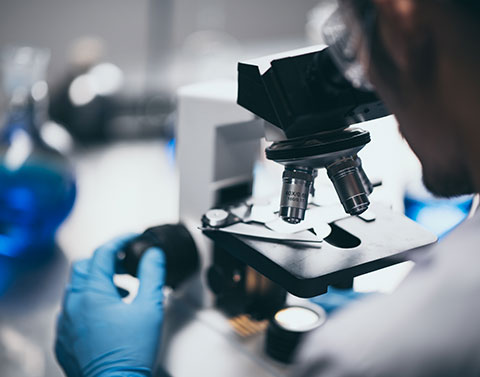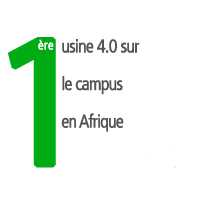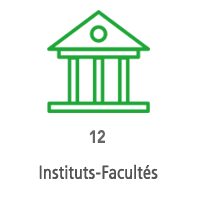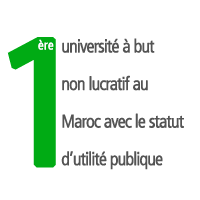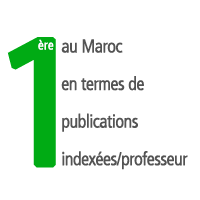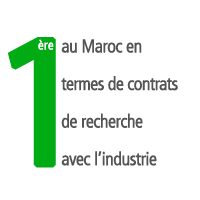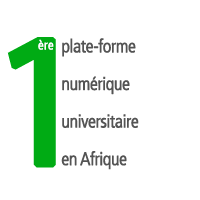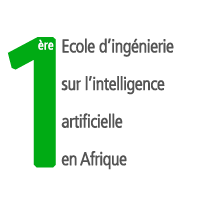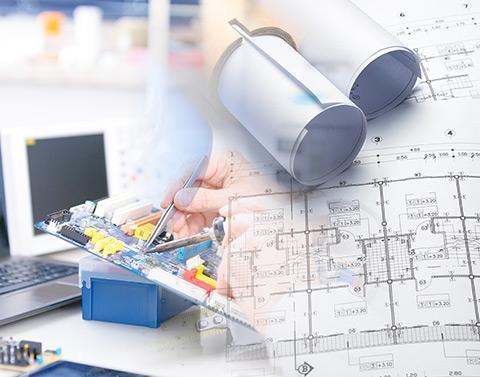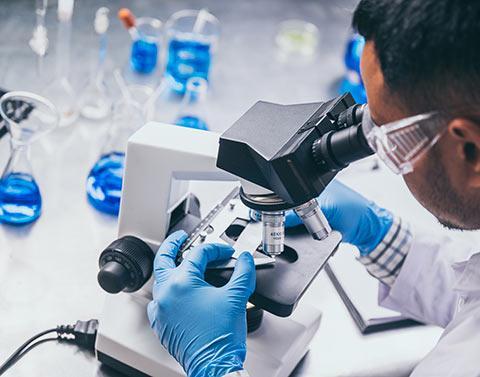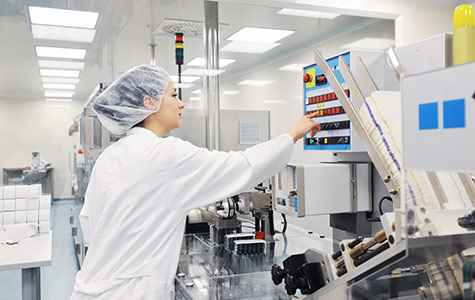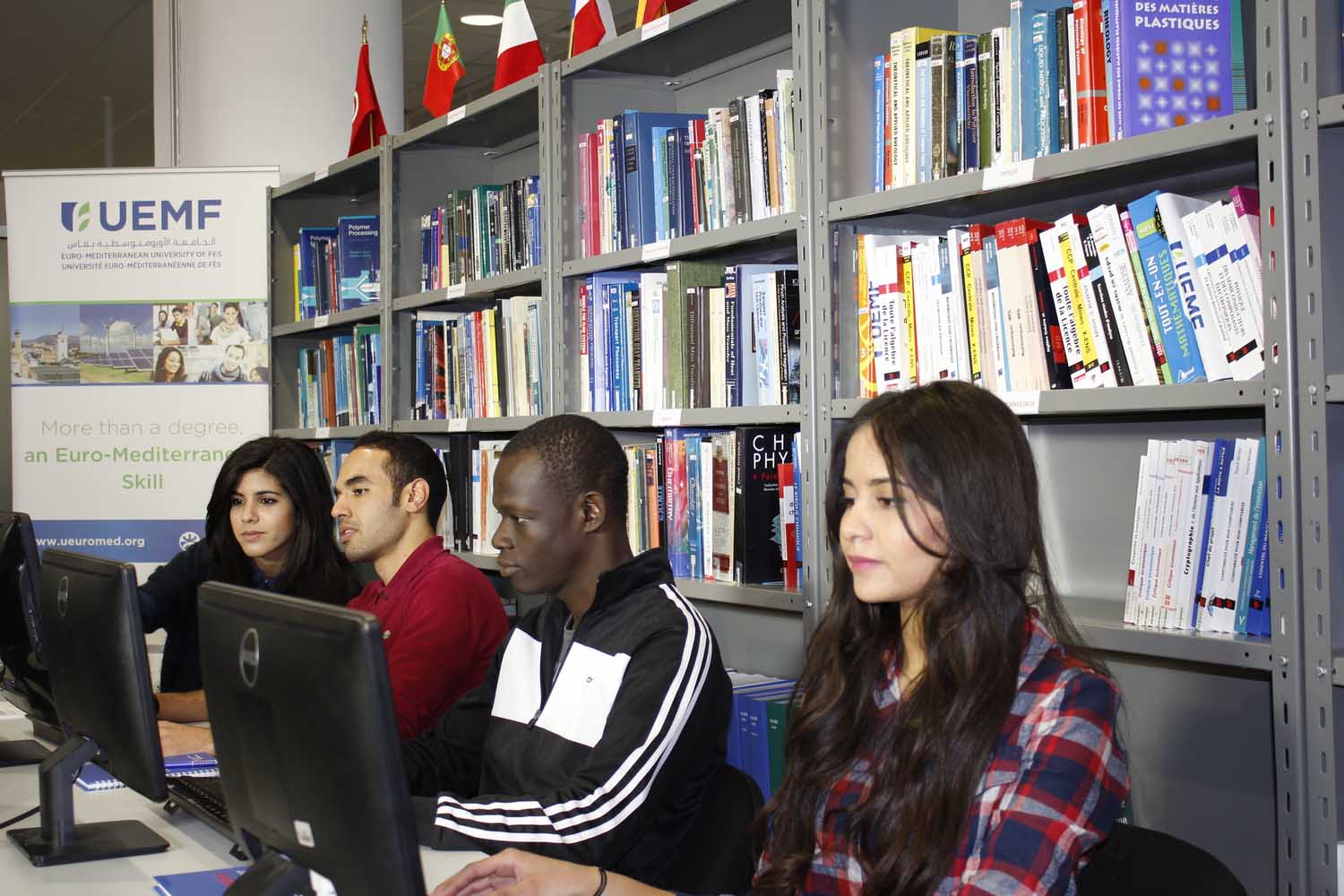Ingénierie Biomédicale
Ingénieur d’Etat
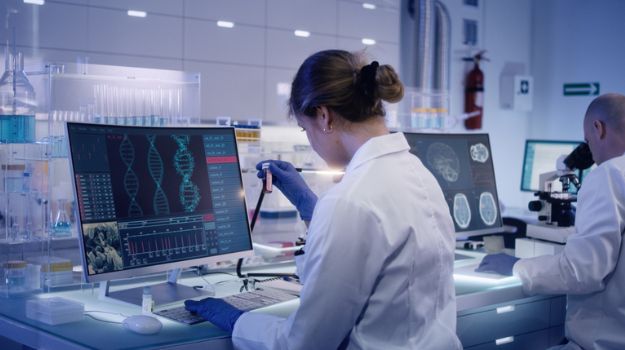
Diplôme délivré
: Diplôme d’Ingénieur BiomédicalDurée des études
: 3 ansCoordonnateur
: Bounou Salim
Semestre 1 :
Physiologie et Anatomie Humaine, Instrumentation Biomédicale 1, Génie clinique, Modélisation des Systèmes Biologiques et Simulation, Laser et Fibres Optiques, Synthèse et Analyses des Réseaux Électriques, Automatique & Robotique, Langues et Culture EUROMED 1.
Semestre 2 :
Instruments Électroniques et Systèmes de Contrôle, Biomécanique, Outils de Prothèses et Orthèses, Résistance des Matériaux, Mécanique des Fluides, Bioéthique, Communication Digitale et Analogique en Biomédecine, Langues et Culture EUROMED 2.
Semestre 3 :
Ingénierie des Dispositifs Microfluidiques, Biosenseurs et Mesures, Architecture et Génie Civil des Hôpitaux, Microscopie et Bioimagerie, Conception des Outils biomédicaux, la Propriété Intellectuelle, Langues et Culture EUROMED 3.
Semestre 4 :
Systèmes bioélectriques, Systèmes et Microsystèmes Biomédicaux, Systèmes d’imagerie biomédicale, Instrumentations Biomédicales 2, Méthodes spectroscopiques, Organes Artificiels et Ingénierie de Réhabilitation, Systèmes Biométriques, Méthodologies de la Recherche.
Semestre 5 :
NanoBiotechnologie, Conception des Circuits Électroniques, Systèmes Informatiques en Biomédecine, Ingénierie et Management du Secteurs Hospitaliers, Traitement de Signal et systèmes, Conceptualisation Assistée par Ordinateur 2, Gestion de projet/mangement de l’innovation/entrepreneuriat, Communication et Culture EUROMED 4
Semestre 6 :
Projet de fin d’étude
Le programme d’ingénierie biomédicale est conçu pour les étudiants intéressés par l’application des sciences et techniques de la physique, des mathématiques et de l’ingénierie aux problèmes de la biologie. Il prépare les étudiants à des études supérieures en ingénierie biomédicale et en sciences biologiques en général, ainsi qu’à des carrières dans la conception de biomatériaux, la conception d’instruments biomédicaux, la conception de dispositifs médicaux (ex conception de prothèses orthopédiques, …)
Le cycle d’ingénierie biomédicale fournira aux étudiants les connaissances théoriques et techniques, une expertise et des compétences transférables dans un domaine qui connait une expansion rapide ; économique et technologique.
Les objectifs principaux de cette filière sont :
- Acquérir une connaissance approfondie (théorique et pratique) en ingénierie biomédicale, et les sciences et technologies qui y sont associées,
- Pratiquer à travers des expériences éducatives et de recherche au sein des laboratoires et ateliers de l’Université EUROMED de Fès, pour mieux comprendre les problèmes techniques et gestionnaires liés au processus de conception et d’industrialisation en ingénierie biomédicale.
Ecole d’ingénieur BiomedTech
Ce programme permettra aux étudiants de:
- appliquer les connaissances en mathématiques, en sciences et en ingénierie pour concevoir et pour mener des expériences, ainsi qu’à analyser et interpréter des données,
- concevoir un système, un composant ou un processus pour répondre aux problèmes liés à des contraintes réalistes,
- s’intégrer et fonctionner au sein d'équipes multidisciplinaires,
- identifier, formuler et résoudre des problèmes d'ingénierie,
- assumer les valeurs de la responsabilité professionnelle et de l’éthique,
- communiquer efficacement,
- comprendre les conceptions d'ingénierie biomédicale dans un contexte mondial, économique, environnemental et sociétal,
- s'engager dans une autoformation continue et à vie,
- utiliser les techniques et les outils modernes nécessaires à la pratique de l’ingénierie biomédicale.
- concevoir et gérer sa propre entreprise dans un domaine innovant en ingénierie biomédicale.
L’accès au cycle d’ingénieur Biomédical est réservé, après un concours d’entrée, aux étudiants :
- des classes préparatoires en ingénierie biomédicale et biotechnologique,
- des classes préparatoires des écoles d’ingénieur nationales,
- ayant un DEUG, DEUST et DUT en sciences de la vie, mathématiques/Informatiques, physique/Chimie, ou équivalent.
Procédures de sélection :
- Étude du dossier
- Examen écrit
- Entretien
Prérequis pédagogiques pour l’accès à la filière :
Valider Bac+2 ou Bac+3 de préférence avec des mentions
L’EI-BIOMEDTECH est dotée de laboratoires de travaux pratiques et de laboratoires de recherche équipés avec le matériel scientifique et technique au standard international dans les domaines biomédical et biotechnologie.
Ingénieur biomédical
Le travail de l’ingénieur biomédical implique l’application de concepts techniques pour résoudre les problèmes quotidiens dans le domaine biologique.
Ingénieur en instrumentation
Le travail consiste à concevoir, tester et mettre à jour divers instruments médicaux utilisés pour le diagnostic et le traitement.
Ingénieur d'installation
Le travail consiste à installer des équipements médicaux haut de gamme (avec une équipe de techniciens) fabriqués efficacement par les entreprises respectives dans les établissements de santé.
Enseignant Chercheur
Le travail de chercheur implique la soutenance d’une thèse de Doctorat et la recherche et le développement pour proposer des solutions innovantes dans le domaine.
Ingénieur en maintenance
Ce travail implique une inspection et une correction rapides de l'usure que divers instruments médicaux pourraient subir en raison de leur utilisation sur une période donnée.






